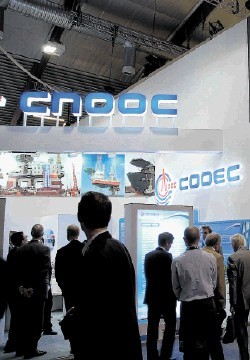
Mergers and acquisitions (M&A) in the oil and gas industry have attracted a lot of publicity in recent weeks. Various bodies have produced reports on the number and value, which appear to have reached record levels in some respects.
The general impression given is that the more M&A the better. The assumption is that they are a positive indicator of activity.
I beg to differ.
The total value of M&A in the oil and gas industry in 2012 has been estimated at about $450billion, of which 45% was in North America, and about 25% higher than in the previous year. Comparable estimates for the UK do not seem to be available but the total value was probably about £25billion and up 40% on 2011.
The latter included the sale of Mobil North Sea assets to Apache; a 49% stake in Talisman Energy (UK) to Sinopec; Taqa Bratani’s acquisition of some BP assets; and the sale of Wood Mackenzie, the Edinburgh-based energy consultancy for £1.1billion.
The general impression given is that such a big increase in M&A activity in the UK oil and gas industry is very positive. However, actual historical evidence suggests otherwise.
Many academic economists have undertaken research on the actual impacts of mergers and acquisitions. Their conclusions show strongly that most takeovers prove to be unsuccessful and that their predicted benefits rarely materialise. The evidence for mergers is more mixed.
A few years ago, I read an excellent book by Thomas Straub entitled Reasons for Frequent Failure in Mergers and Acquisitions (published in 2007). It explains in detail the reasons justified for M&A, including economies of scale, vertical integration, diversification and synergy. The book concludes that in most cases those benefits were not realised.
Straub demonstrates very clearly that in most M&A the shareholders of the acquiring companies have lost value. The main beneficiaries have been the chief executives of the bidding companies and their financial and legal advisers.
Straub – and many other academics – have concluded that many chief executives with ambitious expansion plans pay too little attention to the implications for shareholder value. An obvious example is Fred Goodwin, the former boss of the Royal Bank of Scotland.
The academic research is not specific to the oil and gas industry. It is easy to give examples of disasters in the banking sector. The RBS takeover of ABN Amro in 2007 was one of the catalysts of the former’s collapse and Lloyds’ takeover of Halifax Bank of Scotland has fared little better so far.
The oil industry experience with M&A appears to be better than average, however. At the majors level, ExxonMobil and ConocoPhillips in particular seem to have done well from their mergers.
In the North Sea, there has been a significant contraction of the majors, who have sold many mature assets, such as the Forties field to Apache. Most of these deals have proved to be successful, partly because of the lower operating costs of the smaller companies and partly because high oil prices have improved the economics of most mature fields.
There has also been a notable influx of foreign oil companies. Examples include CNOOC’s ongoing acquisition of Nexen and Sinopec’s purchase of a 49% stake in Talisman UK.
China and Japan are particularly keen to secure their future energy supplies, so are willing to pay good prices for assets in the North Sea and elsewhere. The shareholders of the sellers seem to have benefited in most of these deals.
The experience in the supply chain has been much more mixed, however, and there is plenty of evidence to support the academic conclusions that most M&A have not proved successful, particularly from the viewpoint of shareholders. There are many chief executives in Aberdeen with ambitions like Fred Goodwin had, as we all know.
Many small service companies, particularly high-tech ones with substantial investment requirements, are struggling to obtain bank finance, so being taken over by larger businesses may be a sensible and understandable strategy for them. Others are keen to diversify out of the North Sea and overseas acquisitions may be the best way of doing that. Nevertheless, there are many examples of unsuccessful acquisitions in the industry, both in Aberdeen and elsewhere.
In my opinion, the volume of M&A activity is not a good indicator of the health of the oil and gas industry. Oil prices and company profits are much better. Shareholder value is probably the best.
Tony Mackay is the MD of energy economists Mackay Consultants